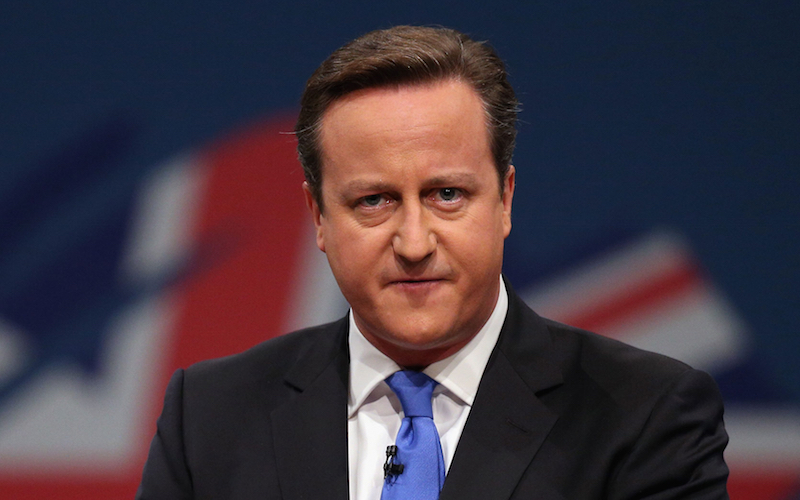
‘Brexit’: Destroying European Unity from the Core
At this year’s June G7 Summit, world leaders gathered in the breathtaking Bavarian Alps to discuss global issues such as growing security threats from ISIS in the Middle East, disturbing climate change trends, and Europe’s recovering economy. All eyes were on Greece as Commission President, Jean-Claude Junker, voiced his frustration over the lack of progress in Greece’s proposals to reform its tax and pension systems, while Angela Merkel underlined that time is running out for reaching a €7.2 billion deal to keep Greece in the Eurozone. On June 22, the Greek government presented a new bundle of proposals to its international creditors, but talks over further aid to stop the government from defaulting on its €1.6 billion debt payment to the IMF continue to stall.
But as the prospect of a “Grexit” occupies the minds of European leaders, many appear to have turned their attention away from a potentially larger EU crisis lurking over the horizon – Britain’s potential exit from the European Union.
Following David Cameron’s overwhelming victory this past May, he made good on his promises to the British people to hold an in-out referendum on Britain’s membership in the EU, largely appeasing his Eurosceptic Conservative backbenchers.
Indeed, despite his own pro-EU stance, Cameron has been warned that unless he wins significant membership concessions, almost 100 Conservative MPs will vote no on the referendum, far greater than the 2011 backbench rebellion which saw 79 Conservative MPs vote for a motion calling on an UK referendum to decide the country’s membership in the EU.
While the referendum was originally set to take place at the end of 2017, that date has now been bumped to 2016, leaving Cameron with little time and wriggle room to win the key elements of his renegotiation package. But if Britain’s demands are not met by other EU member states, it is looking increasingly likely that the nation will reject EU membership come D-Day.
But while many Eurosceptic Britons are quick to criticize the bureaucracy of EU membership, few are actually aware as to the actual cost of a “Brexit.” Leaving the EU will have large-scale economic consequences for Britain in terms of its future economic development and partnerships with Europe, while the EU will suffer significant political repercussions and a long-term identity crisis.
For starters, a recent German study revealed that a British exit from the EU could cost the UK up to €300 billion, or in other words 14% of GDP. While this is the worst possible scenario, in which Britain is no longer able to continue its trade partnerships with Europe, the number indicates the level of interconnectedness Britain has reached with the supranational body. Additionally, on June 12, credit rating agency, Standard & Poor’s, downgraded its outlook on the UK’s sovereign rating to ‘negative’ in light of spooks about Britain’s exit. The move has raised further fears that Britain will likely lose its AAA rating within the next two years according to S&P, which also claimed that, “there are important risks to the UK’s longer-term economic prospects should it leave the EU,” including a blow to foreign direct investment as companies move their headquarters and staff out of London. But a “Brexit” is no doubt a two way street – while Britain will loose out on much needed investment, Europe too will see a blow dealt to its economy and entire institutional framework.
A Britain outside of the EU would result in a mutual loss of political power for both the Union and the UK. The UK represents a significant world power as it stands as a member of the EU. But should it choose to go it alone, it may lose its position as the power broker between Europe and the US, with some US companies already claiming that “the prospect of not being able to operate seamlessly across Europe [if Britain left the EU] is worrying.” More importantly for Europe, a British exit would undermine the Union’s institutional mechanisms, the balance of power between core countries and the periphery, and ultimately threaten London’s international standing. Remarkably, Germany is particularly concerned about a ‘Brexit’ as Britain “is often seen as a German ally in matters that pit the north against the south.” Decision-making within the EU could change drastically if Britain were to leave, and would set a worrying precedent for the EU’s future.
The threat of contagion is also a very real one: the continent’s anti-EU parties, spreading from France to Austria to Finland, will likely view a “Brexit” as proof of a nation’s ability to secure prosperity outside the overburdening EU club, and will seek to find their own reasons to defect. In particular, France’s far right Front National, has long been campaigning to leave the euro and suspend the Schengen area. A British ‘yes’ vote would have significant knock-on effects on the French presidential elections in 2017, leaving the door wide open for the FN’s leader Marine Le Pen to campaign for a French renegotiation of its EU position.
According to Joschka Fischer, Germany’s former foreign minister, both a Grexit and Brexit, and their consequences in terms of Eurozone stability and “the continued existence of the EU, is probably the greatest danger that Europe has faced since the Cold War’s end.” David Cameron has a long road ahead in his renegotiation talks with the 28 member bloc, while at the same time ensuring the British electorate is well informed on the benefits of a Britain inside a reformed EU. The UK is deeply integrated with its European allies culturally, militarily and economically and an exit from the club would be a monstrous blow to the UK’s standing.

